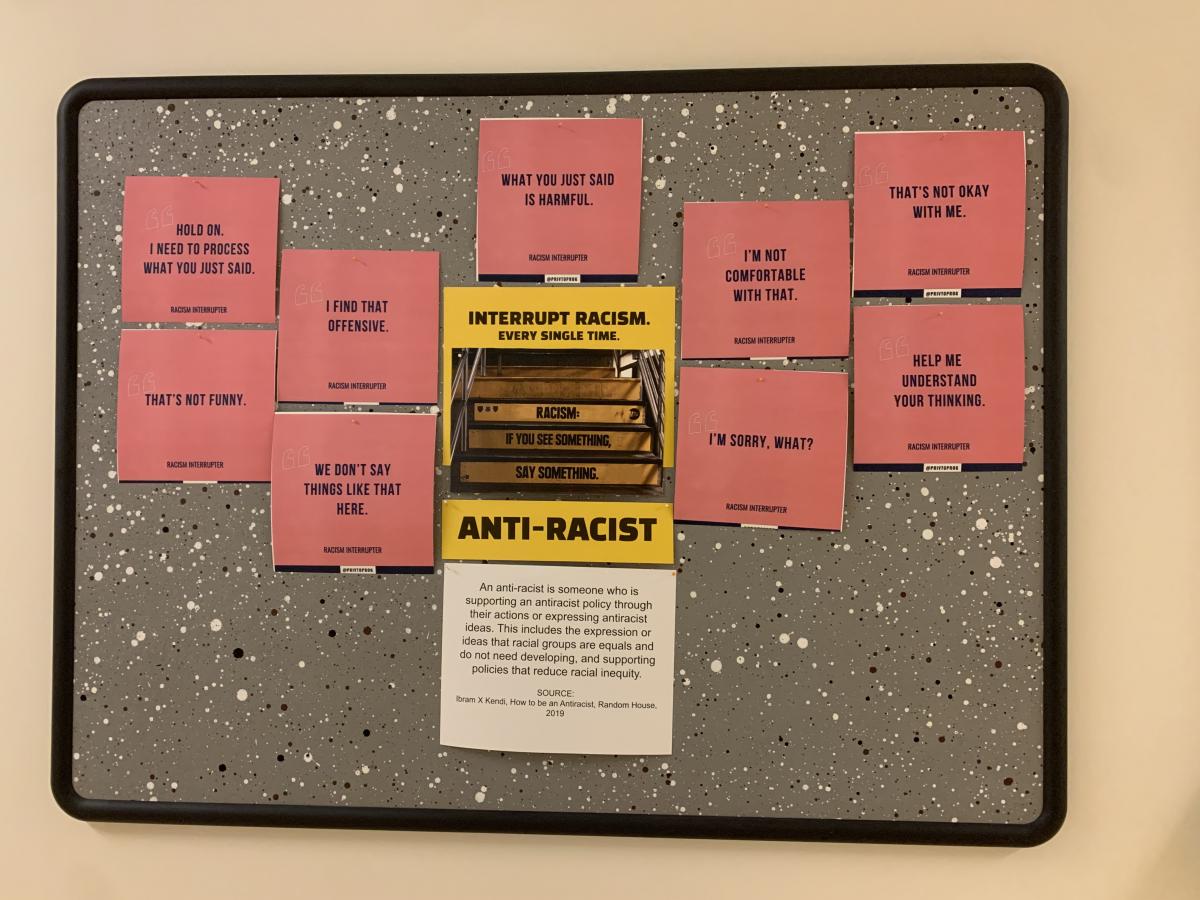NICU families face enough obstacles, racism shouldn't be one of them. Join us on the journey towards an anti-racist NICU by engaging with the resources and activities below.
Comprised of videos, podcasts, readings, and reflections, these activities are designed to prime your NICU team for conversations about racism. Activities are grouped into four tiers that mirror a neonatal growth trajectory, from ELBW, VLBW, Late Preterm to Full Term. We hope that these activities allow you to grow your understanding of how racism affects perinatal health outcomes and further your journey towards anti-racism in the NICU.
The activities on this page were curated in preparation for the 2021 CPQCC Improvement Palooza on "Advancing Anti-Racism in the NICU Through Teamwork and Family Centeredness" by the following members of the CPQCC QI Education Committee: Valencia Walker, MD; Jennifer Canvasser, MSW; and Elizabeth Rogers, MD. Watch highlights from Improvement Palooza>>
Tier One: ELBW
- WATCH a Ted Talk by Camara Jones, MD on "Allegories on Race and Racism"
- READ a perspective on "Stolen Breaths" in the New England Journal of Medicine by Rachel Hardeman, Ph.D., MPH, Eduardo Medina, MD, MPH, and Rhea Boyd, MD, MPH
- LISTEN to episode two of the Natal Stories podcast on "Understanding the History of the Black Birthing Crisis"
- WATCH a TEDMed Talk by Elizabeth Howell, MD on "Improving Maternal Healthcare"
Tier Two: VLBW
- WATCH "A Tale of Two Zip Codes" to learn more about how neighborhood can determine quality and length of life
- WATCH "Housing Segregation and Redlining in America: A Short History" by NPR's Code Switch
- WATCH "Weathering: The effects of racism on pregnant women" by 11Alive.com
- LEARN more by exploring and identifying data describing racial inequities in the care of preterm infants and REFLECT on what you've learned
Part 1:
- Using the 2020 March of Dimes Report Card, identify differences in preterm birth rates and infant mortality rates for various racial and ethnic identity groups in the U.S.
- Explore information presented in the 2020 March of Dimes Report Card about other Social Determinants of Health that may contribute to adverse health outcomes
Part 2:
- Identify differences in preterm birth rates and infant mortality rates for various racial and ethnic identity groups in the state where your NICU is located using the 2020 March of Dimes Report Card
- Using your own NICU’s data, identify whether or not disparities in infant mortality rates exist for babies of different racial and ethnic identity groups
- Using the 2020 March of Dimes Report Card or your local Department of Public Health’s data, determine whether or not differences in preterm birth rates and infant mortality rates vary by racial and ethnic identity groups in the state where your NICU is located
Part 3:
- Complete this reflection exercise
Tier Three: Late Preterm
- READ a systemic review on "Racial/Ethnic Disparities in the NICU" in Pediatrics (2018)
- LISTEN to Episode 43 of the Birth Stories in Color Podcast titled "Saul's Light"
- LISTEN to the "Starting the Conversation: Racial Disparity in the NICU" episode of the NANNcast Podcast
- READ "Birthing While Black" by Swapna Venugopal Ramaswamy
- READ "Racism Causes Preterm Birth" from the book EARLY: An Intimate History of Premature Birth and What It Teaches Us About Being Human by Sarah DiGregorio. Copyright© 2020 by Sarah DiGregorio. Courtesy of HarperCollins Publishers.
- REFLECT on what you've learned through the activities in this tier by completing the reflection exercise
Tier Four: Full Term
- READ"When Antiracism Becomes Trauma" by Jessica Isom, MD, MPH
- LEARN by exploring "Beyond Labels: Doing Your Part to Reduce Stigma" from the March of Dimes
- APPLY what you've learned in real life and REFLECT on the experience
- Part 1: What is a common way that you and/or your team members engage in stigmatizing behaviors/use stigmatizing language that can perpetuate bias and racism in the NICU?
- Part 2: Make an effort to interrupt/redirect/extinguish these stigmatizing behaviors at least once prior to attending this conference
- Part 3: Complete this reflection exercise
- WATCH Amanda Gorman, National Youth Poet Laureate and a former preterm infant from California, deliver a TEDEd talk on how "Using Your Voice is a Political Choice"

Photo of UCSF ICN Microaggression Board.

